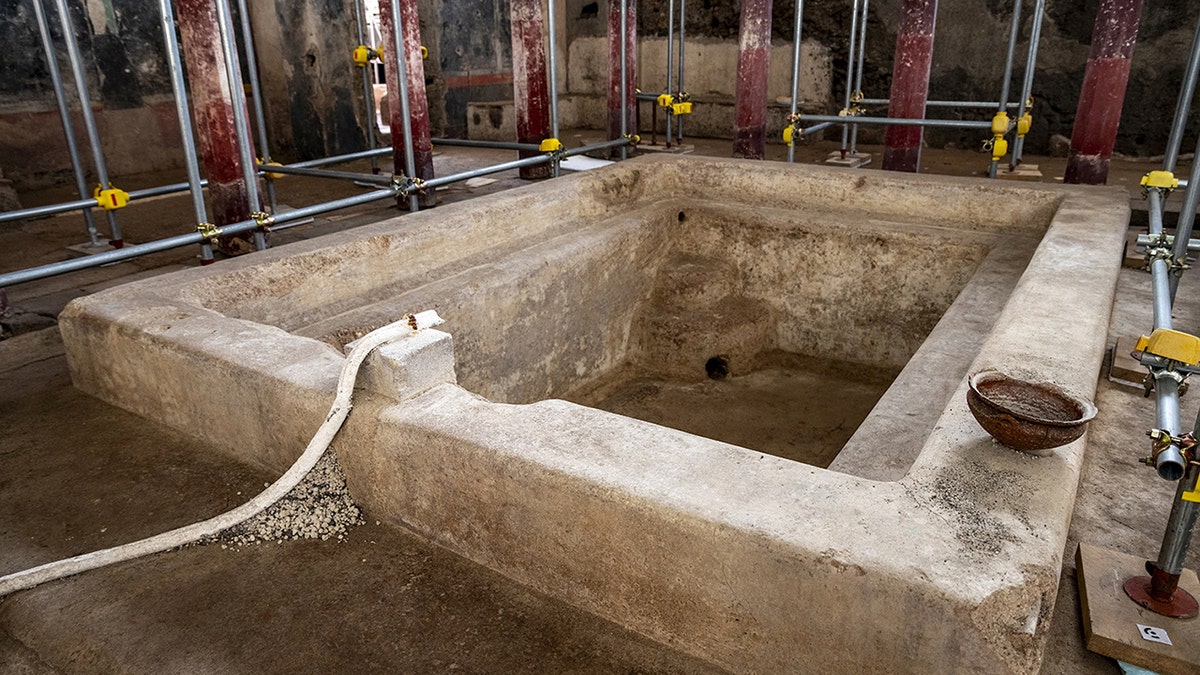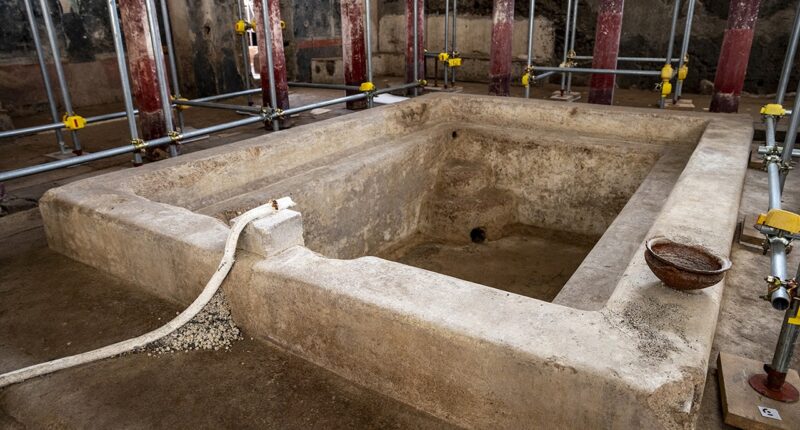A luxurious private bath complex has been discovered in Pompeii by archaeologists, showcasing the opulence and grandeur of the ancient Roman city prior to its devastation by Mount Vesuvius in AD 79, the site announced on Friday.
This bathhouse includes chambers with different temperatures – hot, warm, and cold – and had the capacity to accommodate up to 30 visitors, allowing them to unwind before entering a nearby banquet hall with dark walls adorned by depictions from Greek mythology.
The indulgent complex is situated within an impressive dwelling that has been unveiled during the past couple of years through excavations that have unveiled the diverse social scene of the lavish city before it was entombed by Vesuvius beneath a dense layer of ash.
A central courtyard with a large basin adds to the splendour of the house, which is believed to have been owned by a member of Pompeii’s elite in its final years.
“This discovery underscores how Roman houses were more than private residences, they were stages for public life and self-promotion,” said Gabriel Zuchtriegel, director of the Pompeii Archaeological Park.

The private thermal baths complex discovered by archaeologists in a villa of the ancient city of Pompeii is seen in Pompeii, Italy, in this undated handout picture released on January 17, 2025. (Pompeii Archeological Park/Ministry of Cultural Heritage and Activities and Tourism/Handout via REUTERS )
Zuchtriegel said the layout recalled scenes from the Roman novel “The Satyricon”, where banquets and baths were central to displays of wealth and status.
Decorated with frescoes, the complex draws inspiration from Greek culture, emphasizing themes of leisure and erudition.
“The homeowner sought to create a spectacle, transforming their home into a Greek-style palace and gymnasium,” Zuchtriegel said.
The remains of more than 1,000 victims have been found during excavations in Pompeii, including two bodies inside the private residence with the bathhouse – a woman, aged between 35-50, who was clutching jewellery and coins, and a younger man.
The discovery of their bodies was announced last year.

















